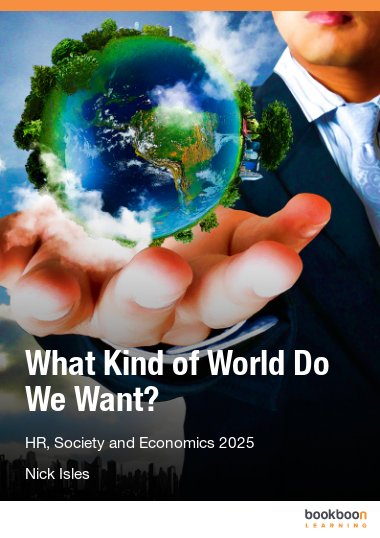HR2025: What Kind of World do we Want? challenges current orthodoxies about the role of HR. It argues that in order to make the world a better place collectively we must find the will to make it so. For HR the challenge is to move from being the effective police of corporate procedures and policies to enabling business partners driving a strategic vision of how the organisation can be in this world of uncertainty. It is above all about building adaptive capacity within the organisation so that it can withstand the exogenous shocks from its fast-changing operating environment.
It means freeing the craftspeople to create and innovate. It means paying well and fairly and recognising talent and success. It means maximising time, task and place sovereignties. For it is only by recognising that the organisation is an organism; a biological eco-system; a fully human environment that performance can be maximised and well-being optimised.
That is the HR that will be required in 2025 as, funnily enough, it is today.


